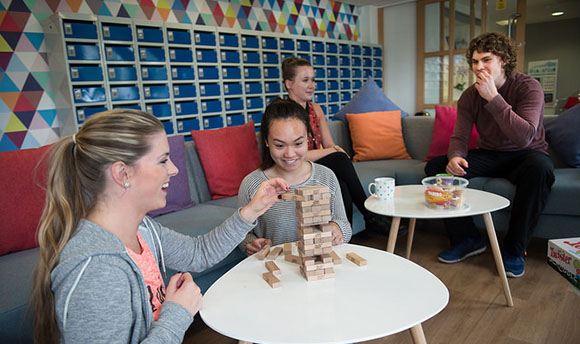Sitting on the early morning train to Dundee, looking out the window to see deer grazing on the misty rolling hills of the Scottish countryside as the sunrise crept along the horizon was a pleasant way to start off the INTO Dundee Heritage Now: Relevance & Community Conference. These types of conferences can feel intimidating for a student, but I really felt like I could choose my involvement which built up my confidence in talking to these industry professionals. The plenary sessions allowed me to hear from leaders in the Heritage sector, the breakout sessions focused on a topic I knew a little about already, and the coffee breaks gave me the opportunity to talk with professionals in smaller groups. After the first day, I felt like maybe I do have something important to add to these conversations.
I also must commend the organisation for addressing realistic challenges faced by the heritage sector, like social activism, engaging with post-pandemic audiences, and state relationships with heritage organisations. I found that the breakout sessions allowed delegates to ask for help. Through these breakout sessions, I noticed that there are common issues this sector faces globally, and it was nice to see newer and smaller organisations give advice to larger, more established organisations. There was an obvious comradery throughout this weekend that I was relieved to see considering the ‘perfect storm’ affecting arts and cultural organisations in the UK. It was also reassuring to see the same effort in understanding the legacy of slavery within today’s sector and the urgency to unravel its knots within such a community-focused industry.
Initially, I signed up for this conference in an attempt to find a topic for my master’s dissertation. At the end, I had a list of topics from heritage in law, culture in crisis, not-for-profit governance in developing countries, and decolonisation in the heritage sector. I’m only slightly closer to a dissertation topic, but I feel as though I know the sector better – both at home and abroad. I’ve also been able to bring what I learned from the conference to my seminar classes which has made our discussions deeper.
Speaking with other students at the conference, we all agreed that the collection of knowledge and skills that congregated at the conference was INTO’s biggest asset. Some breakout rooms could move away from their original topic but were still useful because of the advice being shared from so many different perspectives. For me, the biggest takeaway is that no matter how big the challenge is – whether it’s in finding funding, delicately managing egos, or protecting the past for a better future – there is an entire world of heritage innovators willing to share their problem-solving skills and experience.
I feel very lucky to have had the opportunity to attend the conference at the V&A Dundee, and would like to thank the V&A Dundee for making this experience possible.







